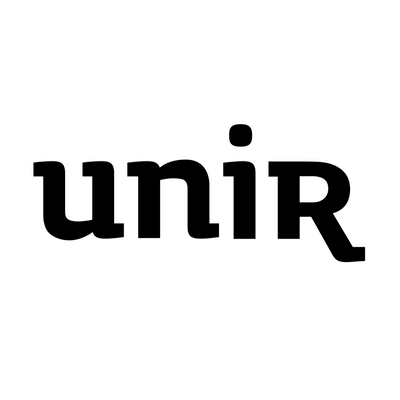Universidad 2023 #Research Article
A self-governing school for creative leadership supported by the Danish government
by Christer Windeløv-Lidzélius, CEO Principal and Professor at Kaospilot
In the European context, there is usually a clear distinction between public and private higher education institutions. However there are some outliers that dare to cross boundaries and generate projects combining both. This is the case of Kaospilot, a world-renowned self-governing school for creative leadership and meaningful entrepreneurship based in Aarhus, Denmark.
The school was founded in 1991 by Uffe Elbek and a group of people coming out of the youth organization Frontrunners. The original aim was to create an education program for project management in the cultural sector. The backdrop was the difficult 1980s in Denmark with high youth unemployment, which rose to its historical maximum of 17.40% in 1983. Kaospilot was somewhat seen as an answer to that problem.
Kaospilot is an NGO, supported by the government, offering mostly non-accredited programs. We have over 30 years of experience in educating leaders of tomorrow for what’s next. We offer a wide variety of international management programs and courses within the fields of project management, process management, leadership, communication, co-creating, experience design, and business development. All our courses and theories are tested in projects set by some of the most prominent and highly recognized international Danish companies such as Carlsberg, Grundfos, Novo Nordisk, and LEGO.
Public-Private collaborative business model
Kaospilot can be seen as an innovation in itself. It is a unique school, stretching from its funding model (state support ~3o%, student payment ~25%, consulting and professional programs~40%), to how it graduates students who are different – at least to some extent – from the vast majority of higher education students in Scandinavia. First and foremost, we are a school, but we are also a business, a project space, a community, a cultural and social space. The combination generates a unique quality to our offerings.

Perhaps, the easiest way is to look at our school as an accelerator. An accelerator of people’s values and aspirations. It is a place and a space where we as individuals and the community explore and engage questions on what kind of leadership does this world need, what kind of projects does this world need and what set you on fire.
If we look specifically at the school you will find that we do not have teachers per se. But there are many other areas were we differ from other higher education programs – for instance our application process, our curriculum that evolves and come alive in the projects we do, that as the program progress more and more responsibility for the education end up in the students hands, we have model based on action-reflection-theory and so forth.
You come to Kaospilot with a dream, a project, a question or just a thirst for knowledge and you can tap into our platform, work with what is being provided and created and turn it into what is of value to you. This school is really about what you make it out to be. We normally say you do not get an education; you take it. Or create it.
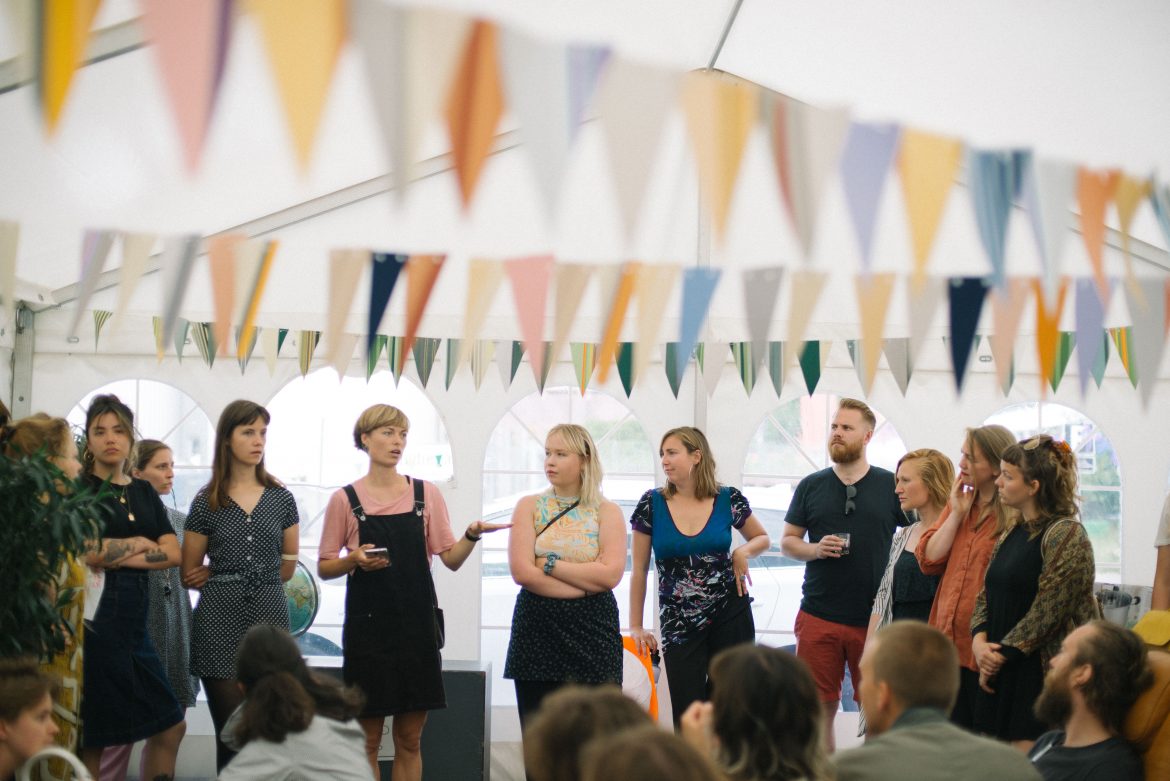
The Kaospilot learning model
Our model is really something that has grown into what it is based on 30 years of experience in helping people to grow. It is stepped into some classical notions of practice-based and practice-oriented learning. Our model can be outlined according to a 4E model indicating experimentation, exploration, enterprise and experiential as key pillars.
Experimentation
In combination with projects and methods, most of our teaching is intended to be experimental. The aim is not only to acquire and transfer knowledge, but also to develop new knowledge and new perspectives.
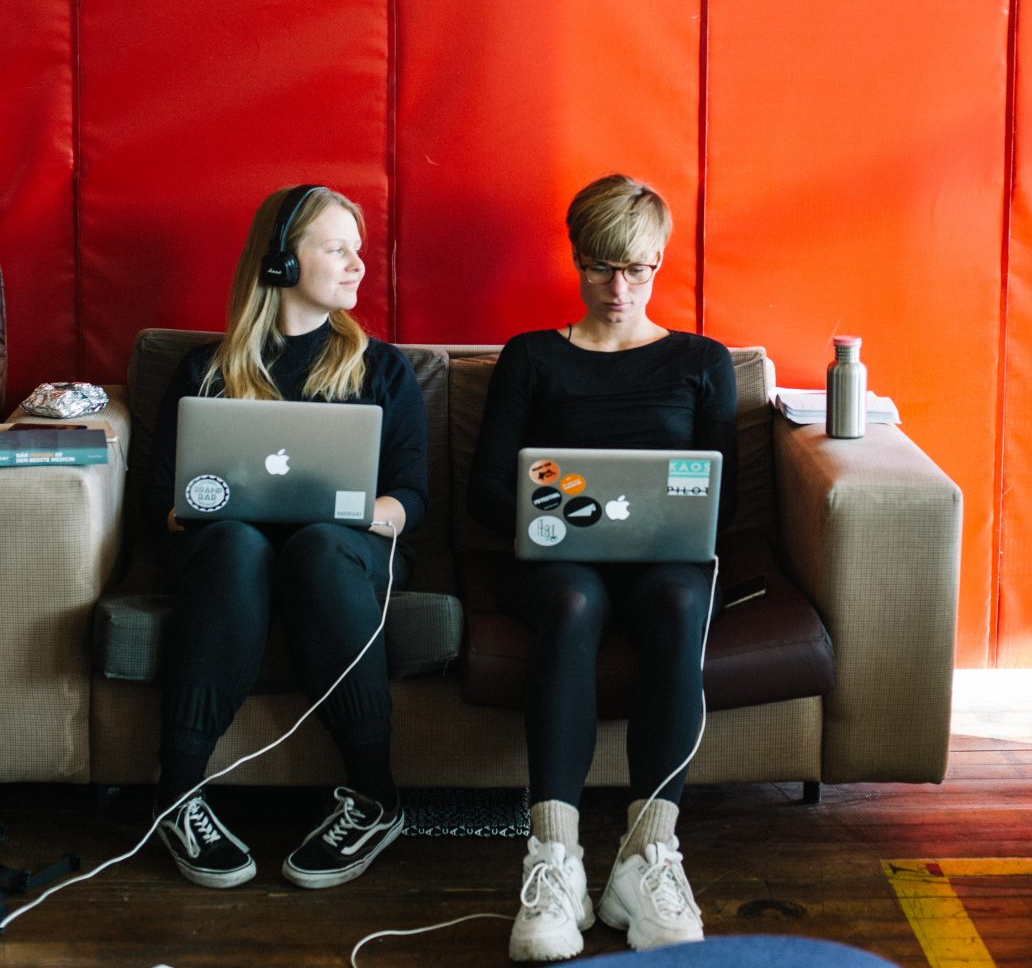
Exploration
Our approach is goal-oriented and rooted in reality. All of our programs explore current and potential trends within their fields of study. At the same time, students and participants are encouraged and supported to develop their own field of interest, imagine their own desired futures and values, and test theories and methods to achieve that change.
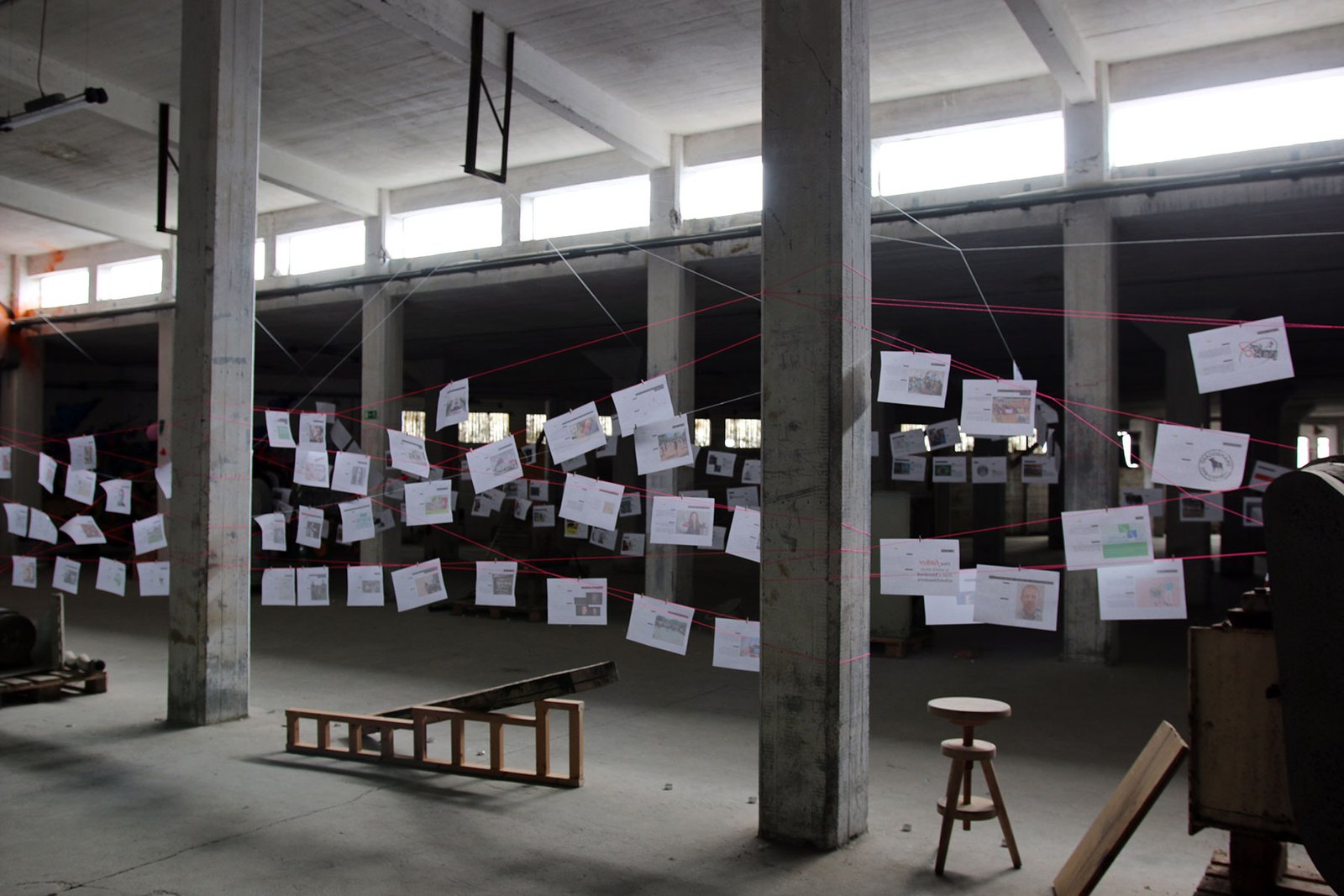
Experience
Learning comes from first-hand experience. Active participation from students is central. Practice within real-time environments encourages not only an increasing level of aptitude, but also a new understanding of the world.
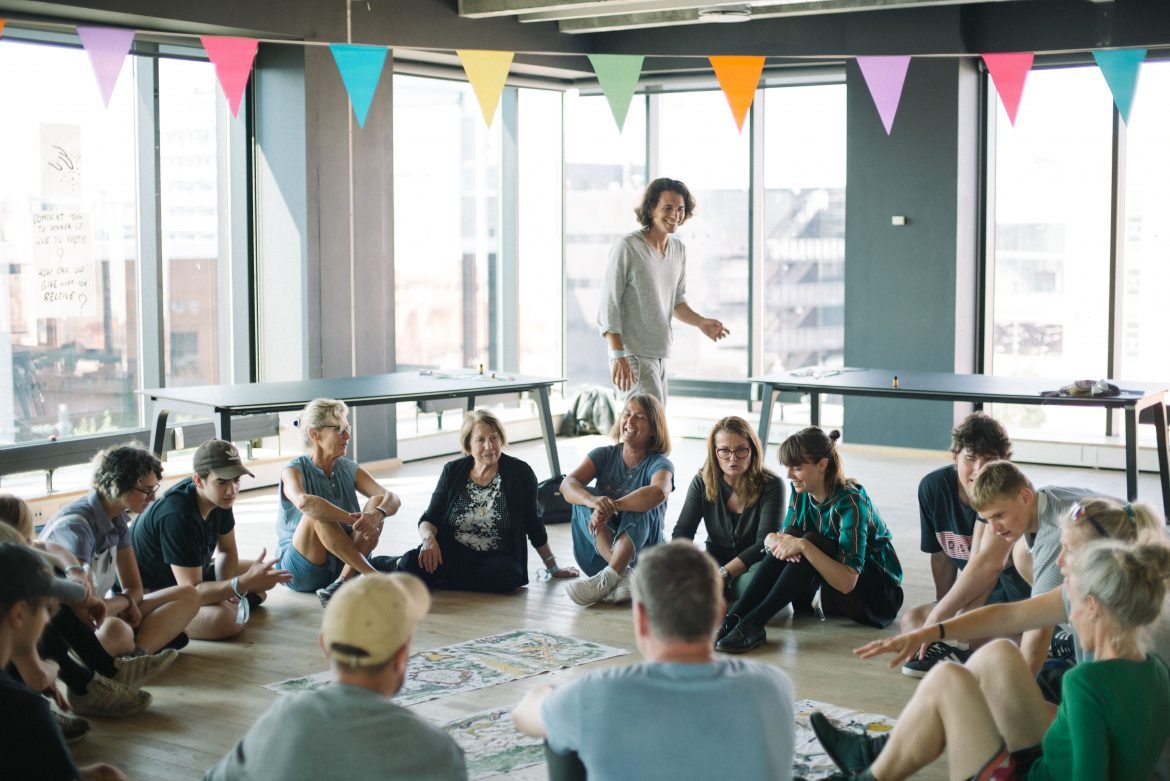
Enterprise
An enterprising approach empowers students and participants by addressing the individual as a starting point and developing a learning environment in which they can move towards new learning. Our programs are strong on imagination and initiative, and encourage our students to show the same qualities.

Basically, quality is based on a feed-forward system where students, staff, lecturers and indeed project partners all play a part in ensuring a more systemic orientation towards learning. It takes place on individual and group project level, but also as some sort of appreciation of teachers coming in, buildup of a module and so forth.
It may be worth mentioning here that we do not have a classical structure per se. At the school we have the role of a team leader, and not a teacher. The team leader is responsible for interpreting the curriculum and to design the learning journey – often with the students – ensure learning and progress and assess the outcomes. That does not mean that they do not teach, but one can say that in terms of teaching their main contribution is to act as role models. In terms of teachers and trainers, we often refer to them as our external faculty. These would be people from different backgrounds, they come with different expertise, and they work with sometimes as little as an hour only, but sometimes it can stretch up to a semester.
If we speak specifically about our team leaders, we normally do have multi-layered strategy herein. Firstly, we hire people on merit but also look at them as part of a group where we are looking for complementary qualities. It helps us to embrace different students but also look upon opportunities for change from a variety of perspectives. We normally then conduct on the job training where you are supported by your peers and head of study – but also by other people in the organization. When suitable you can join our shorter programs to get a better perspective on what we do and how we work. This may be particularly important if you have not had prior experience of Kaospilot. It is important that role and responsibility goes way beyond facilitating knowledge transfer from an expert to a learner. Kaospilot is more about culture than structure and as such a team leader needs to learn how to be a promoter of an inclusive and productive culture. This is also learnt by trial and error, and we encourage honesty with students and peers as we learn as a system. This means that students often then act as teachers for our team leaders and not just the other way around.
Student target and selection process
People join our programs from all over the world and they are indeed offered across the world. In terms of our 3-year program in Aarhus Denmark we are only allowed to accept students with an EES passport. However, the Master in Strategic Design in Complexity, run in collaboration with Elisava -in Barcelona- , accepts students from across the world for shorter professional programs. We select people who join our education programs slightly differently in Barcelona and in Aarhus and Berlin, but what unites them is the selection criteria rooted in experience and fitness to the program rather than mere academic merit.
As a standard process people sign up and start to work on the application material in question. This normally consists of unfolding more about who you are, what you bring to table and what you hope to get out of an education at Kaospilot. Then there is a creative assignment or display of a portfolio. And then finally there is – in Aarhus and Berlin – an application process consisting of 2 – 3 days where you have a chance to show more of who you are and how you go about challenges individually and in groups.
When we select students we first ensure that people are actually eligible to start, then we look at individual merit and finally we evaluate how they can support the team and learning community at the school. An important aspect is that the current students are part of selecting the new students. It is simply part of their training at the school.
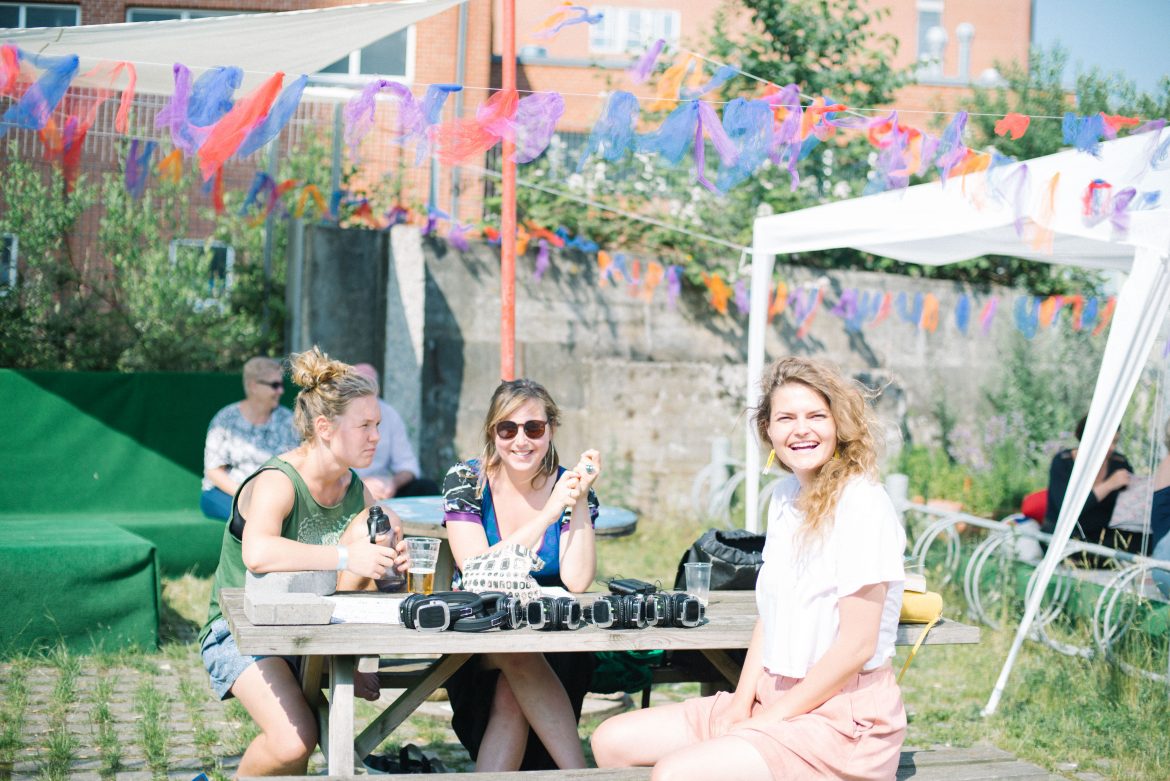
Differences with the traditional university experience
I think it is fair to argue the university experience has changed a lot over the last 2 decades. Maybe the biggest difference with Kaospilot is that we make the learning experience the key aspect of our value proposition, whereas knowledge creation stands as the central feature of the university proposition.
It is said that necessity is the basis for innovation. This is certainly true in some respect when it comes to Kaospilot. Take for instance the role of team leader (see below). This is partly a consequence of limited funding making it impossible to build a full-time, classical faculty. We have also played down some of the experienced formalities in terms of degrees and exams, qualifications of teachers and hierarchy.
Perhaps a more accurate way to look at this is less about cutting out than going about it differently. Take for instance grades and exams. We do have this, but there are not so many. Our focus is far more on learning than performance (I.e. proving a knowledge level) and this stretches into the actual exam situation, and indeed beyond – as we design for continuous learning.
As we look at “content-providers” we have a more agnostic approach towards the need for academic qualifications to teach. We value and ensure a variety of cultural and experiential backgrounds – from the politician, to activist, to the academic, to entrepreneur and so forth. We focus on the application of knowledge, not so much the accumulation of knowledge.
In any system there are power structures and there are far more often than not, hierarchy – formal roles and responsibilities. So is also the case at Kaospilot, but I would argue that the access to say management is far easier than in many other schools. I, for instance, have my desk virtually in the kitchen. On a similar note, critique and ideas are mostly met from an explorative and appreciative approach rather than a dismissive or non-interested perspective. The school can also learn.
An area we have consciously curated is the experience of being part of an education. Here we have focused on something our smallness can perhaps more easily do than the classical higher education. Indeed, several universities do recognize the value of what happens outside the classroom (often referred to as extra-curricular activities). I would argue we do not necessarily separate it, but rather look at our offering as a 360-degree 24/7 type of experience. It is a full package that we utilize even if we have little influence on the design of major parts of this experience.
Assessment and accreditation
Kaospilot in Denmark and the Kaospilot+ platform in Berlin are non-formally accredited.
Kaospilot in Aarhus is approved and monitored by Aarhus University and the platform Kaospilot+ in Berlin -an inter-dependent platform providing educational programs- would be accredited by Kaospilot in Aarhus.
So, in short, there is no formal, classical accreditation model but more a quality system rooted in results and experience. The process is quite straight-forward in the sense that Berlin+ provides data and analyses rooted in its performance. Kaospilot in Aarhus comes with constructive instructions on how to ensure alignment with expectations. Areas to be examined are staff, projects, learning culture, partners and so forth.

Alumni support
Maye the biggest asset we have in this respect is that we still have so few alumni that need the assistance of the school and can easily reach and ask for help. We do not per se have an alumni organization, but we have several social platforms for them where we encourage asking for help, offering help and so forth. As a school we make our shorter programs and other initiatives available online for those who seek to update or find new knowledge and skills, as well as we often facilitate job offerings provided by different collaborators in our network.
We also have project space where graduates can sit and work with other professionals on their projects and startups. Sometimes, alumni take advantage of the projects we may be doing in different locations by simply hooking up, utilizing spaces and people then available.

Kaospilot and the future
We want to be the best school for the world. Our way to approach this is mainly through graduating people with the capacity and will to make positive changes. What these changes may be depends to a large extent on an individual decision of course. We normally say that at the core of the Kaospilot curriculum is a question mark. We are looking for the intersection of the three questions: What kind of leadership does this world need, what kind of projects does this world need and what set you on fire. Figuring out this intersection is an individual journey, but the school is an arena, a support system to do so. That is also why we see so many students go in different directions, even though there are clear qualities uniting beyond knowledge and tools and an epitaph like being a Kaospilot.
We are developing our own praxis and orientation as such a school to better meet today’s expectations. Specifically that means that after around years of work on regeneration we are taking more active steps towards becoming an accredited B-corp as to show our commitment towards a more sustainable and regenerative world, but also as to live up to the aspiration of being the best school for the world.
We are developing a few different areas of work. On one hand we are working on a vertical development of our educational offerings in the sense that we have just started a master program together with Elisava in Barcelona – Strategic Design in Complexity. We also started to develop the first initiatives towards a Kaospilot high school. Mind you this is not as much an alternative to existing high schools, but more as a supplement, focusing on many qualities sought after today but not necessarily worked on – such as creativity, collaboration and well-being. Furthermore, we have launched a platform called Kaospilot+, pioneered in Berlin where we are experimenting with different programs, most notably one on leadership and activism.
On a different note, we act as a frontrunner in terms of being an education and we push an agenda to explore educational boundaries. As such, for us that people find us relevant and unique is important. As the education landscape shifts, so do we, towards new uncharted territory.
Finally, one can say it very simply that we educate the leaders of tomorrow. Here we believe that the world needs leaders who are empathic, boldly pragmatic and can show the way. We want to have leaders who are global in the sense they can function in different cultures and act upon assignments they are actually not necessarily trained to tackle. It is something about being uncomfortable with the status quo, comfortable with ambiguity and turbulence and aiming for connecting people.
We are looking for partners who share some of the same aspirations and values towards the world and individuals, that can facilitate projects and opportunities for us in different locations.
Kaospilot results in the first 30 years
We conduct research on our alumni from the different programs, as well as keeping track of who we reach and work all together. If we look at the more macro figures, we have around 900 alumni from the 3 year Enterprising Leadership Program and around 8.000 people on our shorter programs. As an entity we do around 200 projects a year (staff and students combined) and if we look at the number of organizations we have worked over the years, we come in at around 10.000 (i.e. an estimation).
On the more qualitative level I can point to the latest internal alumni research (2021) focusing on graduates from the last 5 years which hold much of interest but maybe the most interesting questions here investigates “to what extent do you live a life according to your values” and “to what extent to you pursue a direction in life in line with your aspiration”. Here the answers were overwhelmingly positive, coming in way in the excess of 80% and 70% (approximately).

University 2023 – Starting Up Universities project has been financed by:
UNIR
UNIR, part of the PROEDUCA Group, is a pioneering project in higher education. Born as a Spanish Online University, it counts now with +50,000 students from +90 Countries and presence in the United States, Spain, México, Perú, Colombia, Ecuador and Guatemala.
